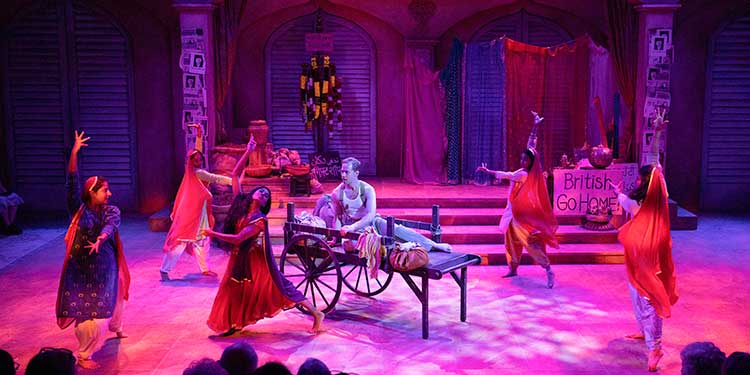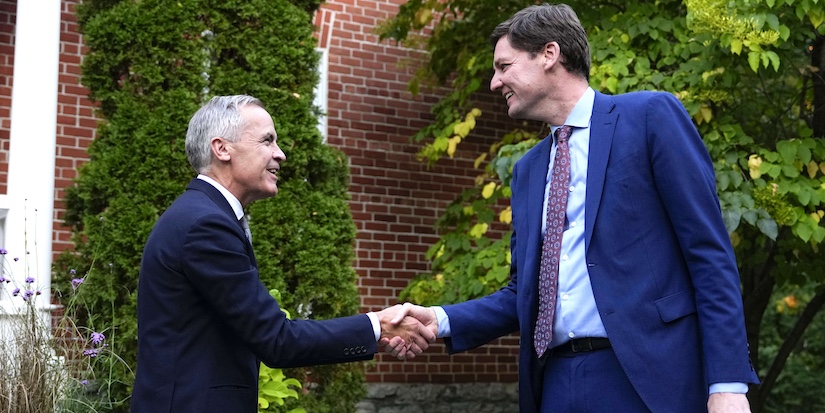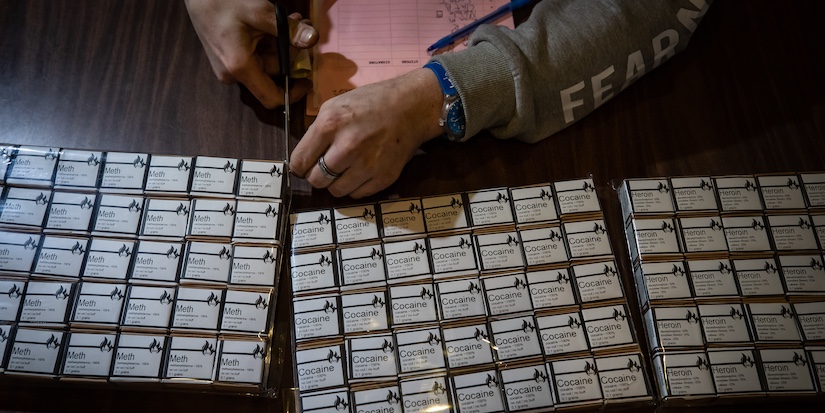Arts & Culture
All's Very Well at Bard on The Beach
Kudos to Bard on the Beach, Western Canada’s largest outdoor Shakespeare festival. Long known for gender and colour blind casting, this year the festival has gone one better. In staging the Bollywood version of “All’s Well that Ends Well,” Bard has included Indian culture in the play as well.
Kudos to Bard on the Beach,
Western Canada’s largest outdoor Shakespeare festival. Long known for gender
and colour blind casting, this year the festival has gone one better. In
staging the Bollywood version of “All’s Well that Ends Well,” Bard has included
Indian culture in the play as well.
No stranger to bending time,
gender or fashion, in their day Shakespeare’s plays were often performed with
costumes not of their written era. Bard on the Beach continues in that fine
tradition and takes the next step towards inclusion and education.
Bard based All’s Well on
Boccaccio’s Decameron. While Boccaccio’s work was set in Florence, Italy around
1348, the Bard’s text was written at the dawn of the seventeenth century.
Shakespeare set the beginning of All’s Well That Ends Well in the French court
and the rest of the play in the Forest of Arden.
So, taking liberties with dates
and locations is nothing new for Shakespearian productions.
Retaining the vibrancy and words
of the original play, this production is set in 1947 India as the country’s
independence from Britain looms.
In the final days of the British
Raj, the ruling of India as part of the Empire, the first half of the play
shows us life from the English ex-pats’ point of view as Indian nationals
interact with their “masters” on the Brit’s terms.
One subtle note at the beginning,
the opening dance number, redolent with Bollywood music and motion, shows the
servant women joyously cutting a rug. While each is in white, their costumes
represent each of the three main religions of India, united in one dance.
Later, when partition looms, that unity falls painfully, and sometimes
violently, apart.
The second half of the production
skillfully shows Indian village life, in all its vibrancy and machinations. It
also shows the turmoil that led to the British-led partition, the dividing of a
long-united collection of over a dozen Indian provinces, into the Muslim
country of Pakistan, and the Hindu country of India.
This is a comedy that doles out
laughter while simultaneously dealing with serious issues of race, colonialism
and sexual politics. In the sexual politics realm, Shakespeare offers much
language full of racy double-entendres, that are as true today as in 1600 or
1947, regardless of country or continent.
First off, all of the actors are
stellar. Sarena Parmar as Helena is stunningly beautiful, perfect for the role.
The role calls on all her exemplary skills as an actor, dancer and singer. It
made me wonder, right off the bat, how many casting agents overlook South Asian
actors of her skill.
Lucia Frangione as the English
Countess gives a pitch perfect performance. Bernard Cuffling as the viceroy, a
role played in real life Indian independence by Lord Louis Mountbatten, takes a
small role and enriches it with his full pallet of skills gained over an entire
career of rich roles. Cuffling can get a laugh – reminder: this is a comedy –
out of the tiniest of lines, delivered with subtle perfection in timing and
intonation.
Parolles, skillfully played by
Jeff Gladstone, offers comic relief as the sexist buffoon throughout the play.
The Dumaine brothers, in this
production, are two Sikh soldiers played with honesty and subtly by Munish
Sharma and Nadeem Phillip. At the talk-back after the play, (Note: Go to Bard
on Tuesdays to have a chance to ask your questions of the actors after the
play.) one of the brothers said, “In Act 2, we see the people behind the image,
so that when we see them later, we know they are not just nameless soldiers,
they too are people with emotions, passions and beliefs.”
A special mention to Alan Brodie
and Conor Moore’s lighting design and Carmen Alatorre’s costuming. As an
example, they combined with finesse when the female lead Helena dons a long
scarf in the moonlight. The lighting creates a halo around her through the
yellow veil which at first reveals then with a subtle change in lighting,
conceals her identity.
The set was simple yet opulent
when part of the Raj, vibrant and colourful when village life mulled about.
Simple transitions, often affected by the actors themselves, transformed the
locale clearly and quickly.
Sitting on the edge of an aisle,
sometimes the blocking meant actors were, well, blocking the view. It’s hard to
satisfy all audience members in a U-shaped seating plan. That said, this is
your chance to see a live action Bollywood musical up close and personal.
The audio was outstanding. From
the audibility of the dialogue to the vibrant music that orchestrated the
Bollywood dance numbers. It was clear to see that the actors were chosen not
only for their outstanding acting abilities but for their dance skills as well.
I had hoped to ask about the
ambiguous ending but the moderator for the talk back asked almost all of the
questions so there was only time for one inquiry from the audience. Another
attendee says that is common with this one moderator. While he asked good
questions, this valuable part of audience participation was lost.
Bard of the Beach’s production of
“All’s Well that Ends Well” goes beyond colour-blind casting. This production
integrates a rich culture, a vibrant culture that is woven into the fabric of
our own country, to further the argument for inclusion, as well as to educate
and, most of all, entertain.
Co-created and co-directed by
Johnna Wright, of Saskatoon’s famous Wright theatre family, and Rohit Chokhani,
the artistic director of Diwali in BC, this production is not to be missed.
With some shows already sold out, “All’s Well that Ends Well” runs through August 11 at Bard on the Beach at Kits Point in Vancouver. The site is wheelchair accessible. For tickets go to https://bardonthebeach.org/2019/alls-well-that-ends-well/ or phone (604) 739-0559






























